International Relocation: The 11 Happiest Countries to Live and Work

Every year, the World Happiness Report publishes a list of cities and countries across the globe. The report is based on several factors including culture, climate, economic, work-life balance and GDP per capita.
This article will explore the highest-ranking countries in the list, why people love to live there and what it would be like to be a permanent resident there.
Contents
Each of the highest-ranking countries will be broken down into its own section, we will be taking a look at why people like living there in general, and the balance between careers and personal life, lifestyle and the culture.
We’re going to cover:
- Finland
- Australia
- Denmark
- Norway
- Canada
- Netherlands
- Iceland
- Switzerland
- Austria
- Sweden
- New Zealand
Finland
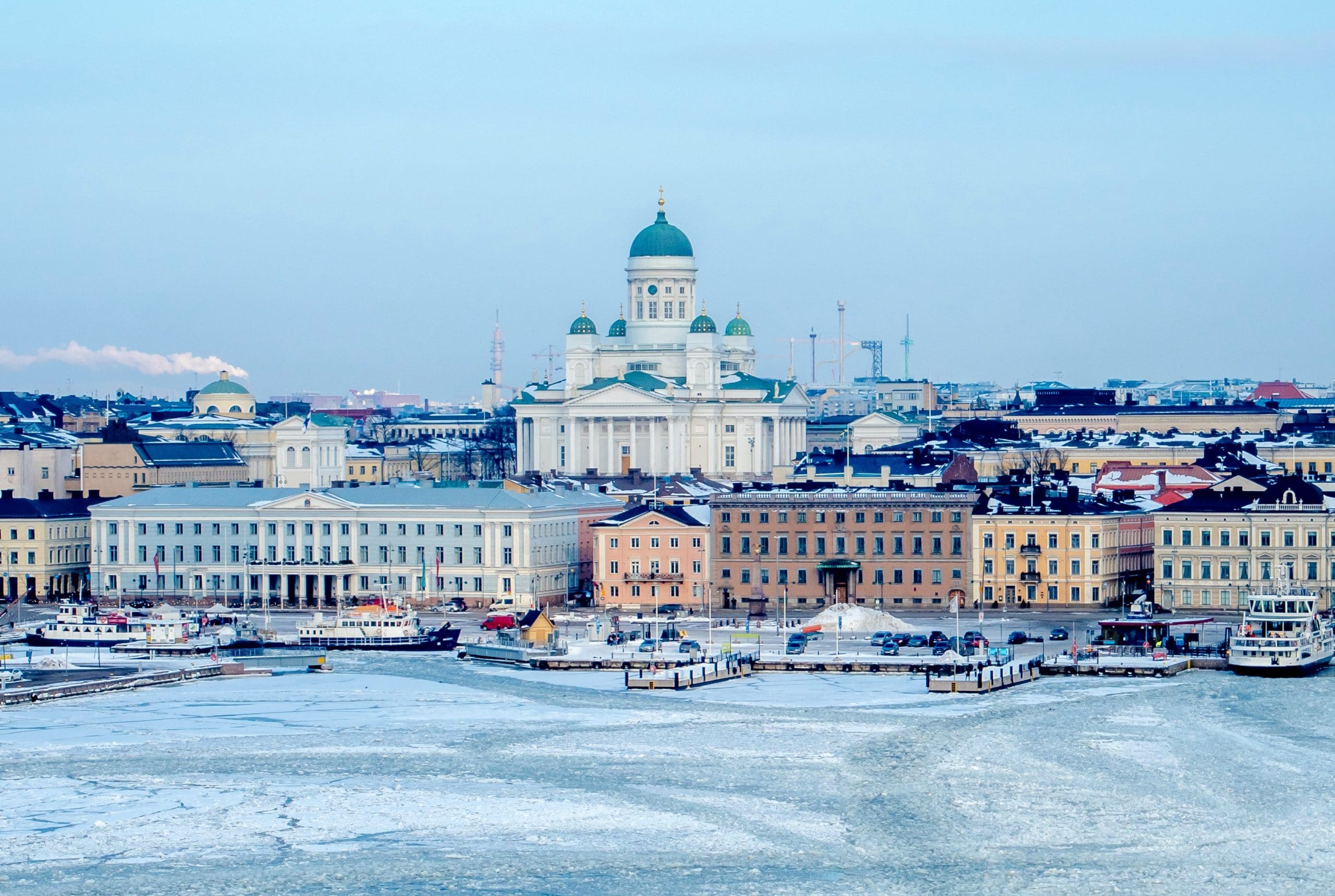
Since the World Happiness Report began in 2012, Finland has sat comfortably in the top five and has taken the number one spot a few times.
What makes Finland such a great place to live and work?
Finland, along with the other Nordic countries, boasts free healthcare, free childcare, low crime rates and the best work-life balance.
Finnish employees spend approximately 7.2 hours per day at work which frees up more time to rest and enjoy their leisure time, which they take very seriously.
When it comes to careers and salaries, Finland ranked 3rd in the Global Gender Gap Report by the World Economic Forum (WEF). Finland, with Iceland and Norway, are paving the way for equality.
Did you know… According to the Central Chamber of Commerce, 11 companies listed on the Helsinki Stock Exchange have female CEOs.
Transport networks by air, rail, road and water are comprehensive and reliable in Finland, come rain, shine and snow blizzards.
Children from the smaller city of Oulu still ride a single-speed bike and even sledge their way to school in the snow. As long as you’re well equipped, you can get around!
Lifestyle
Finland has been dubbed, “The Land of a Thousand Lakes”, and if exploring the great outdoors is an ideal weekend for you, you won’t be short on ideas.
Need a great bar or restaurant to head to after work? Demo, Olo and Palace offer unique dining experiences. Finnish gastronomy has come a long way from the traditional dishes pickled herring and salted liquorice!
Did you know… There are roughly 2 million saunas in Finland? There are more saunas than cars in the entire country!
Local prices
- Beer: $7
- McDonalds meal: $9.50
- Cinema ticket: $16.50
Australia
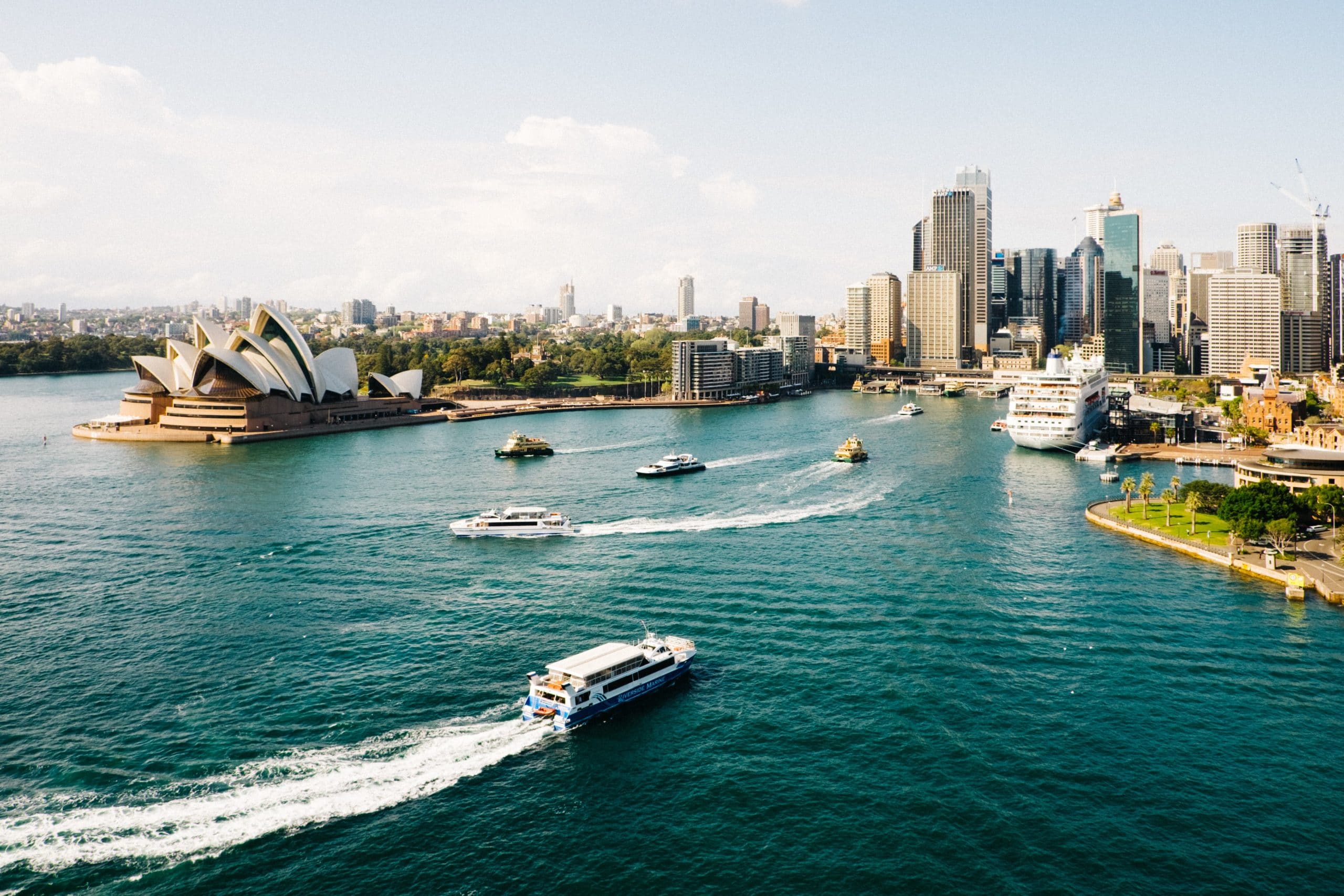
Sitting outside the top 10 but still ranking high is Australia. It seems that life Down Under is a big draw for many expats.
Why is Australia a great place to live and work?
For American and British employees, there is less of a cultural shock and no language barriers to contend with, only getting used to Aussie Slang.
The areas in which residents score Australia highly in the survey are its diversity, excellent access to education, high life expectancy and socioeconomic well-being.
Transport and Commuting
The typical commute in Australia is around 10 miles, and about 78% of workers rarely find themselves traveling more than 12 miles to work, most of the major cities in Australia are built to favor private transport.
There are dedicated cycle lanes in Sydney, Melbourne, Canberra and Perth but you may want to avoid cycling in the summer months. Temperatures have been known to reach up to 123.3°F, so most people will want a vehicle with aircon!
Lifestyle
Most free time is spent with family, friends and most importantly, watching or participating in sports. Australia doesn’t have one national sport so you may want to brush up on your rugby, netball and cricket knowledge for watercooler conversations.
While the working week is around 37 hours, you can forget the usual 9 – 5. Flexi-time is an option available to most employees in Australia and allows for more quality time to spend with your family or taking care of your wellbeing.
The great work-life balance and laid back culture are exactly what employees who relocate to Australia crave. According to a report published by Allianz Global Assistance, 68% of employees are happy with their working hours.
Did you know…85% of residents live within a one hour drive of a beach.
Local prices
- Lunch in a business district: $12.50
- Monthly city centre gym membership: $48
- Cinema ticket: $13
Denmark
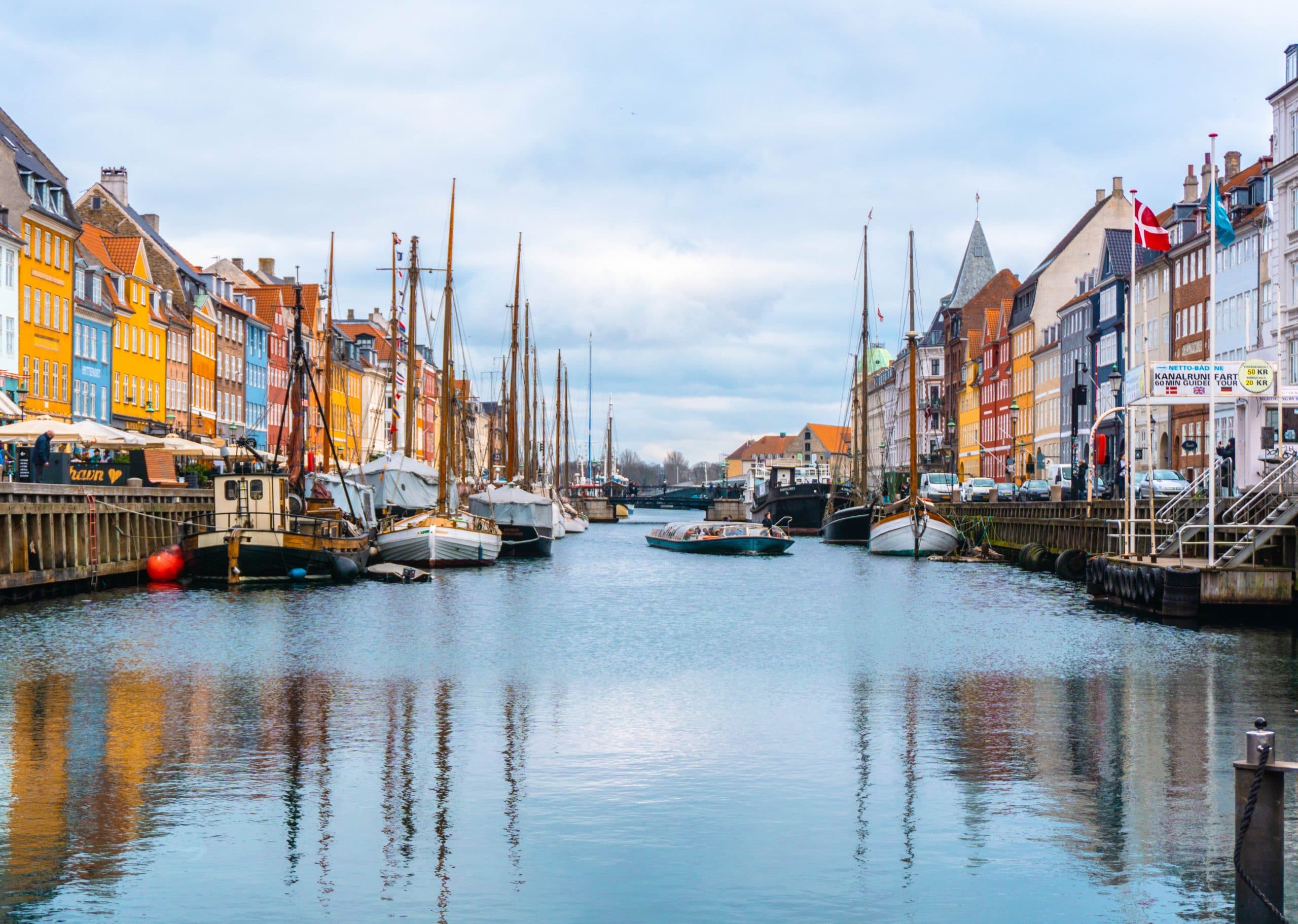
We mentioned a Scandinavian theme running through this article, and it comes as no surprise that Denmark (Happiest Country in 2013, 2015 and 2016) is there.
Why is Denmark a great place to live and work?
The Danes have the highest tax rate in the world, but the majority of Danes are happy with a large chunk of their income going towards taxes. They believe that paying more into the system creates a better society. Danish childcare and public services are among the best and most efficient in the world.
The full-time working week for a mid-level role is 37 hours across five days. Working hours can start as early as 6am but the latest finish will be 6pm. Senior roles and managers tend to work longer shifts, often up to 60 hours per week.
Commuting
Around Copenhagen and Aalborg (the two cities in the country that have scored the highest on the Happiness Index), commuting by bike is the quickest way to get from A to B. The cycle lanes are clearly marked and priority is given to cyclists around the city centers.
Buses and the Metro also run efficiently. The Metro in Copenhagen has just four lines and it’s extremely difficult to get lost!
Did you know… The Danes have a lifestyle concept called “Hygge” pronounced “hoo-gah”. This word is used to describe a warm, relaxed and cosy feeling. In English, it translates to “fun”.
Local prices
- Lunch in a cafe: $25
- Beer: $7
- Two-course meal in a high-end restaurant: $80
Norway
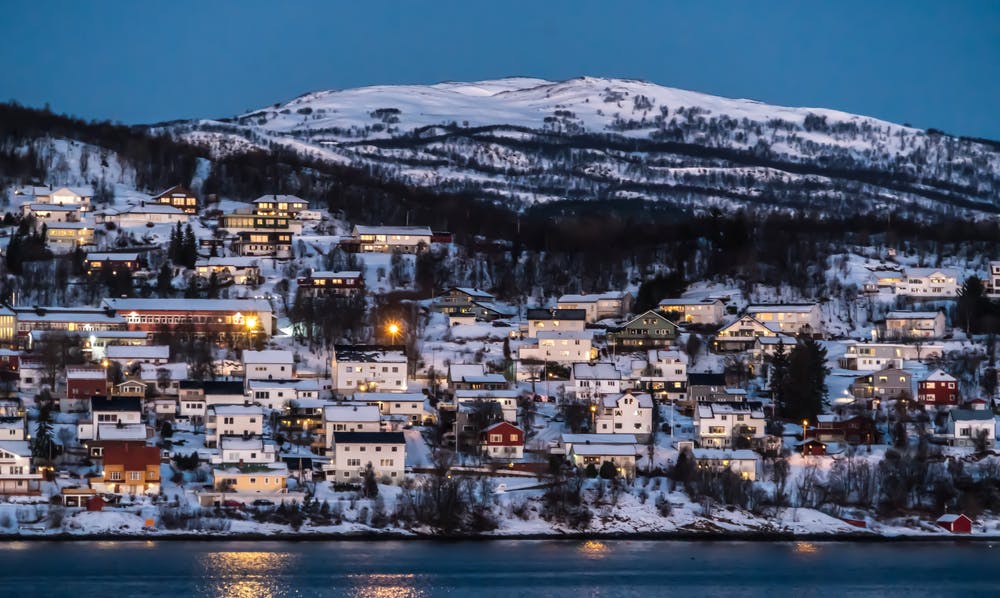
Placing first in 2017 and never dropping below the top five, Norway deserves to rank high on the Happiness Index.
Why is Norway a great place to live and work?
Much like Denmark, Finland, Sweden and Iceland, there’s good economic growth, high life expectancy, and excellent social support and welfare systems.
A country that champions equality socially and economically, Norway has the lowest-paid CEOs in the world and a small income gap between genders and classes. Norwegians also have access to the best equal opportunities in the world when it comes to careers and education.
Norwegian workers do an average of 6.68 hours per day and work 5 days per week. That’s one of the lowest on the list, but productivity is still high.
Lifestyle
Outside of work, Norwegians like the “Friluftsliv” (“free air life”) and following Allemansretten Law which gives them the freedom to roam wherever they like. Providing it’s not too close to someone’s house and doesn’t have a fence.
Family and personal leisure time are important to Norwegians and they’re a fairly active nation that enjoys hiking, wild camping, kayaking and skiing.
Did you know… Skiing is a Norwegian sport. The word “ski” is an old Norse word for “split piece of wood”.
For a few weeks during the summer, there are 24 hours of daylight in Norway. If you don’t get the chance to go kayaking at the end of the working day, midnight in the summer is also an option.
Local prices
- Cappuccino: $5.50
- Cinema ticket: $17
- Budget meal for one: $22
Canada

Consistently sitting within the top 10 is the USA’s neighbor, Canada.
Similarly to Australia, American and UK citizens do not have a tough time adapting to the Canadian way of life as there’s lots of similarities between the cultures.
The only language barrier you may encounter is in Quebec where French is the official language.
Why is Canada a great place to live and work?
Canada is famed for its excellent access to healthcare, good nationwide wealth, public safety and racial acceptance. Not only that, but the happiest community in the world resides in Neebing, Ontario.
Canadian workers spend an average of 36.6 hours a week at work and productivity is high.
Toronto, Ottawa, Vancouver, Montreal, Victoria and Quebec City are all hotspots for tech industry roles too.
The transport links between Canadian regions are efficient and reliable plus there’s a big focus on being greener when it comes to commuting. Cycling and public transport are actively encouraged in major cities.
Lifestyle
The work-life balance in Canada does have a good rating, approximately 70% of Canadians believe they work enough and enjoy their free time, despite being known as a nation that works from daybreak to dawn.
If you’re looking for a spectator sport to enjoy or, excuse the pun, break the ice with co-workers, ice hockey is popular as well as lacrosse.
Local prices
- Beer: $4.50
- Budget restaurant for one: $21
- Cinema ticket: $10.50
Netherlands
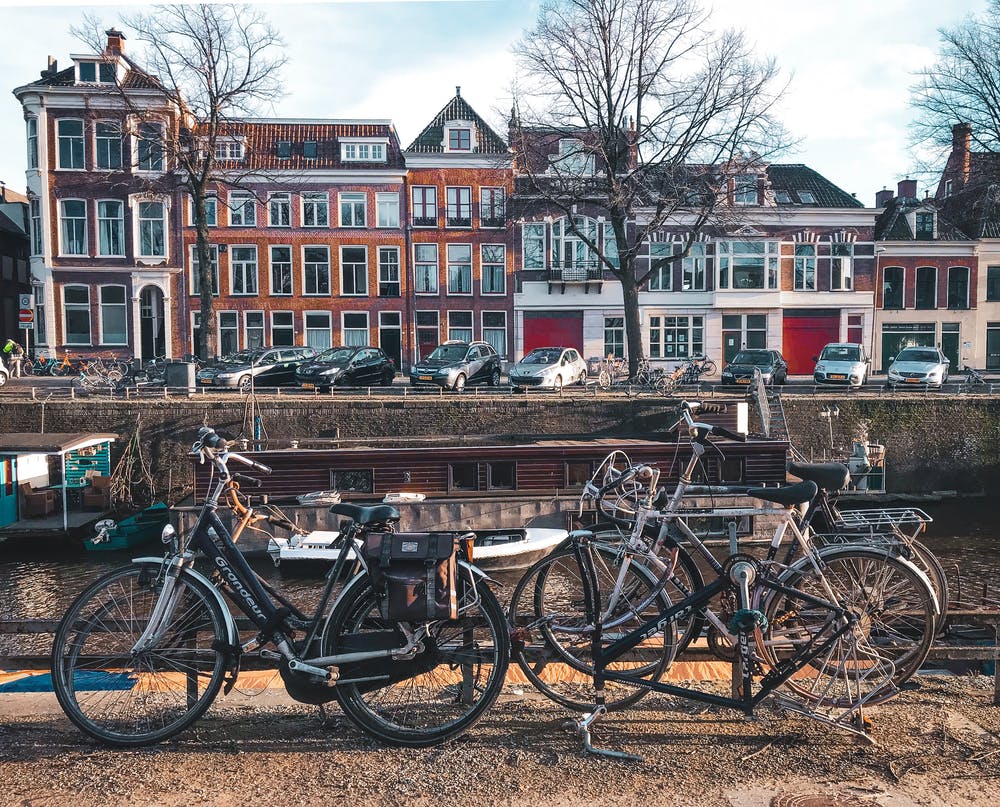
About The Netherlands
The Netherlands sits just outside the top five of the official World Happiness Report and with the Dutch being known for their super laid-back outlook, it’s hardly surprising that they rate so highly.
Why is the Netherlands a great place to live and work?
The Netherlands ranks highly due to a strong level of institutional trust and social connections as well as a low crime rate.
Productivity is high in the Netherlands but, according to I Am Expat, working overtime is quite rare. Overtime may be expected as part of a role with time in lieu provided rather than overtime pay.
In the Netherlands, and more specifically the major cities of Amsterdam, Rotterdam, The Hague and Utrecht, commuting to work is a breeze.
There’s a comprehensive tram system in each of these cities but, the number one way to get around is on a bike. If you or someone you know has visited Amsterdam, you will know that the cyclists show no mercy and they are given full priority on the roads.
Lifestyle
The Netherlands isn’t the most wallet-friendly place to socialize after work but, a small beer with colleagues after a day in the office will cost you around $5.50.
There are lots of ways to spend your free time, most Dutch residents and expats spend their leisure time socializing, shopping or head out to a park on a bike ride.
It’s also one of a few European countries where there isn’t much of a barrier with language. Most people in the Netherlands speak fluent English as it’s taught in schools from a young age. It’s still a good idea to learn some Dutch or, depending on the region, Flemish.
Did You Know… 20,000 lost and stolen bikes are recovered out of the canals of Amsterdam every year!
Local prices
- Three-course meal for two in a mid-range restaurant: $71
- McDonalds meal: $9.50
- Cinema ticket: $15
Iceland

Dubbed ‘The Land of Fire and Ice’ due to its mix of volcanic springs and arctic temperatures, Iceland remains in the top three, and at least once has been number one, in the World Happiness Report.
Why is Iceland a great place to live and work?
A volatile climate with all four seasons hitting the country in one day doesn’t stop Iceland from being one of the best countries in the world. Iceland has also been dubbed “the most peaceful nation in the world” by the Dalai Lama.
Icelandic citizens have, compared to the other Nordic countries, a relatively low-income tax rate of around 46%, access to free healthcare and education.
Icelandic workers generally work an 8 hour day, 5 days per week. As it’s a higher cost of living (renting a property costs the equivalent of $1,000), workers tend to work harder and longer hours to make up for this. Working hours are usually 9 – 5 but, during the summer months, 8 – 4 is the norm for many workers.
Did you know… Of all the countries that belong to the Organization for Economic Cooperation and Development, Iceland has the highest number of women in the labor market.
Don’t worry about being late during your work commute either, even in icy and snowy conditions, geothermal pipes run underground keeping the roads and sidewalks clear.
Lifestyle
We have already mentioned that the cost of living in Iceland is relatively high. You can expect to pay over $100 for a two-course meal for two in a mid-range restaurant. A bottle of domestic beer is the equivalent of $9! If you’re heading out for a meal or drink after work, it’s best to do so during ‘happy hour’.
Eye-watering socializing costs and hard-working aside, leisure time is still extremely important to Icelanders. Mirroring the Finnish and Norwegians, many people like to spend their time outside of work exploring the great outdoors, especially during the summer months when the weather is calmer!
Did you know… Iceland is one of the most eco-conscious countries in the world. Almost 100% of electricity comes from renewable sources.
Local prices
- Pizza meal: $30
- Cappuccino: $4.50
- Beer: $8
Switzerland
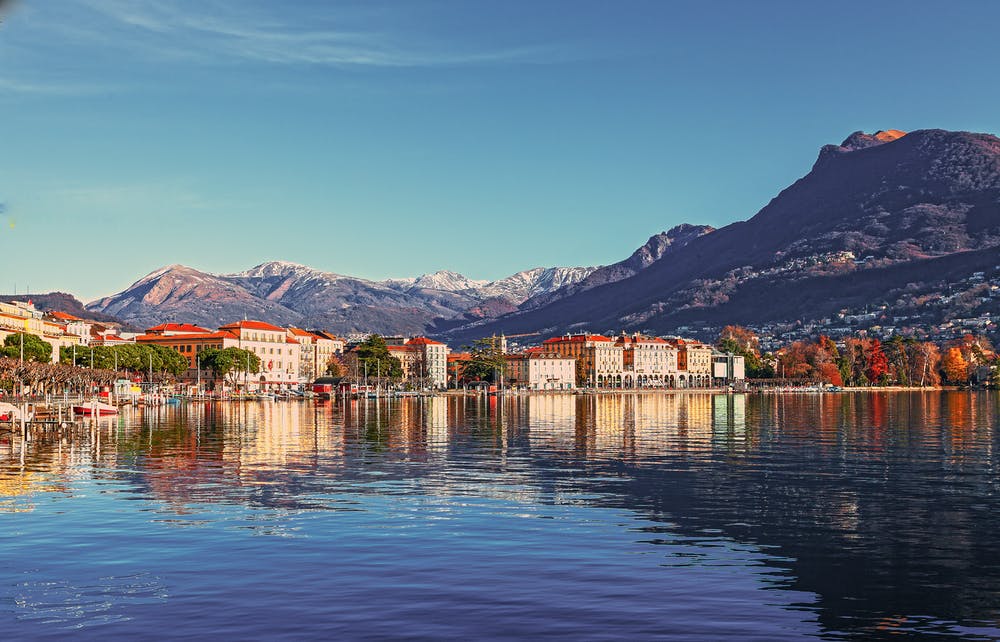
A high life expectancy, excellent economic growth, the best healthcare in the world, famous chocolatiers and a public transport system that runs to the second, it’s no wonder that Switzerland is one of the happiest countries in the world.
Why is Switzerland a great place to live and work?
The Swiss work 35.2 hours a week, on average, according to the Organisation of Economic Co-operation and Development (OECD). The working week largely mirrors the rest of the world, Monday to Friday with office hours being anywhere from 7 – 6.
Residents and workers are multilingual with German, French, Italian and English being the main languages spoken. To break the ice and make chit-chat with your co-workers, it is better to introduce yourself in French or German and explain if you need to speak English as a courtesy.
It’s a cliche but Swiss trains and transport are never late so your commute to work will be efficient and could include beautiful Swiss scenery.
Did you know… Contrary to popular belief, Switzerland isn’t technically a tax-free country. Swiss nationals do not pay tax, but foreign individuals cannot work or bank within the country tax-free.
Lifestyle
Switzerland isn’t really a country famed for its bohemian or laid back style, it does follow a lot of rules and regulations but that doesn’t mean that workers don’t relax.
Many residents belong to a club or a hobby group, and they tend to be quite kooky. But, if joining the Swiss Poodle Club isn’t your ideal way to unwind at the end of the working day, heading out for fondue or skiing may be more your thing.
Switzerland is a rich country so be prepared to pay higher prices. If you’re planning on going out for fondue or raclette, it’s the equivalent to $35 per head. A large local beer and cocktail will cost you close to $30.
Did you know… Switzerland has produced 25 Nobel laureates out of a population of around eight million.
Local prices
- Beer: $8
- Three-course meal for two in a mid-range restaurant: $110
- McDonalds meal: $16
Austria
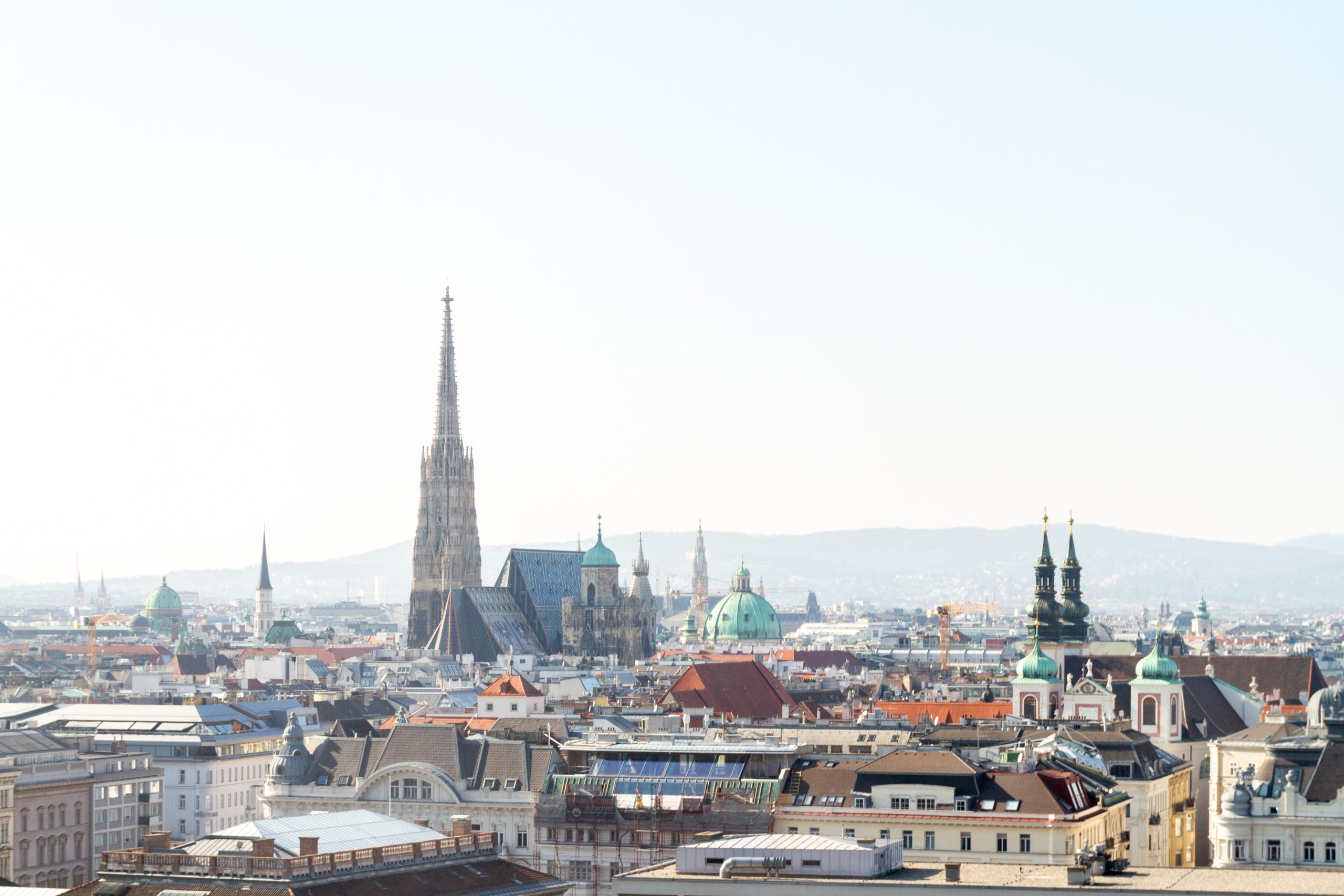
According to the Happy Planet Index, Austrian citizens have a high life expectancy, exceptional social support and its citizens’ freedom also gets a high score.
Why is Austria a great place to live and work?
The national standard for full-time workers in Austria is 40 hours per week, with 8 hours a day being spent at work.
Austrians seem to have hit the nail on the head with their work-life balance too. If you’re lucky enough to work at the Austrian IBM office, you may get yoga or a massage included in your working day to help you relax.
Out of work, family and self-care is the main focus for citizens and employers across the country. Hiking, visiting relatives and friends is how free time is mainly spent. There’s also a close-knit community vibe within the smaller towns where residents like to look out for each other.
As family and social time being important, flexi-time at work is quite normal across most industries. The typical working week for an office employee would look a little something like this:
Monday to Thursday: 8 – 5pm
Friday: 8 – 3pm
If you’re planning on having some networking drinks or a bite to eat in Austria, you can expect to pay approximately €3.20 for a large beer (that’s around $3.75) and a three-course meal for two people is around $60. Austria seems to be the most reasonably priced country on the list so far…
Local prices
- Coffee: $3.50
- Budget restaurant meal for one: $14
- Cinema ticket: $11
Sweden
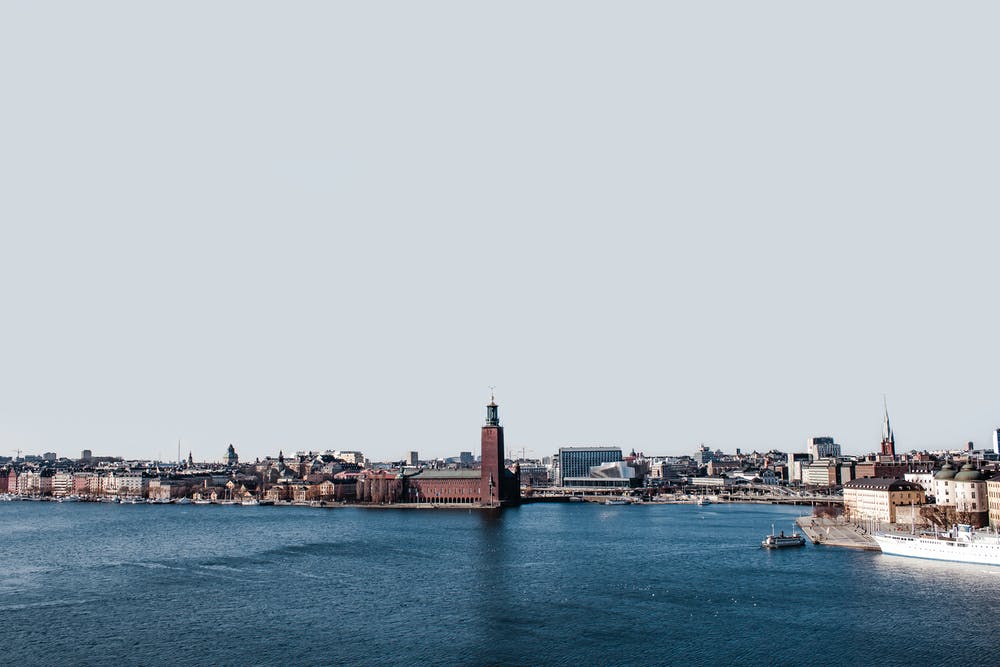
The final Nordic country to get a mention and, another one that sits contently in the top five of the World Happiness Report, Sweden is another fascinating country.
Why is Sweden a great place to live and work?
There’s a reason why Sweden, and the other Nordic countries, occupy the top of the list and you may have spotted the theme: a top standard welfare system, excellent social care, democracy, sustainability and zero waste approach, high life expectancy, racial and gender equality.
The Swedes seem to be working fewer hours in the office but still hitting high productivity levels as in 2019, the average working week was around 30.2 hours!
It comes as no surprise that the Swedes, much like the Norwegians, Danes and Finnish, are a nation of nature lovers and like to blow off steam in the great outdoors.
Did you know…Similar to Norway’s Friluftsliv, Sweden also has ‘Allemansrätten’ which roughly translates to “every man’s rights” which allows you to roam freely, fish, forage, camp and explore. You just need to respect the land and leave somewhere as you found it.
If you lean more towards city skylines and bustling sidewalks, the major cities of Stockholm, Gothenburg, Malmö and Uppsala are all perfect for professionals looking for careers in technology, fashion and finance.
Just like the neighboring countries, Sweden’s cost of living is expensive. Renting a one-bedroom city apartment can be as much as 1,200SEK per month, which is equivalent to $1,375. Your lunch break could be as much as $30 per day and a bottle of wine is also around $35.
Local prices
- Glass of wine: $7.50
- Beer: $8
- Meal for two in a high-end restaurant: $202
New Zealand

Last but by no means least, on the list is New Zealand.
It’s the country of “can do” and as a nation, they’re pretty good at dealing with anything that comes their way. Champions of equality, a good life expectancy and great wellbeing, New Zealanders – or lovingly named “Kiwis” due to the national bird, rightly deserve their place in the top ten.
Why is New Zealand a great place to live and work?
The standard working day starts at 8:30 and finishes at 5, however the New Zealand government introduced the Employment Contracts Act which gives employers and employees the freedom to set the length of their working week and their start and finish times.
According to an article on the OET website, 76% of Kiwis were happy with their work-life balance and 91% were extremely satisfied with their relationship with their managers. Adapting there is easy no matter who you are or where you’re from as Conde Nast Traveler claims that Kiwis are a warm and welcoming bunch.
Lifestyle
New Zealanders have a strong work ethic – it’s all about working hard to get ahead. But, that doesn’t stop employees from spending quality time with their friends, family or participating in the things they enjoy.
With a great balance of city life, stunning countryside, mountains and beaches, residents tend to enjoy a mix of active and relaxed leisure time outside of work.
When it comes to the cost of living, it’s fairly moderate compared to the other countries listed. Renting a city centre, fully furnished apartment will cost you around $1,154.98 per month. Cocktails after work are around $12 each.
All of these countries listed are based on the 2020 World Happiness Report. If you are relocating overseas or want to know more about relocation ARC is a perfect choice; you can take a look at our website resources or contact us for more information.
Local prices
- Beer: $6
- McDonalds meal: $8
- Coffee: $3

Bill Mulholland, SCRP, GMS
Founder & Owner
ARC Relocation
About Bill
In his role as Director of Business Development at ARC Bill oversees all aspects of the growth initiatives for both government and corporate clients, domestically and globally. Bill graduated from George Mason University with a BA in Psychology and has been in the relocation industry since 2000. Bill has earned both his SCRP and GMS designations from ERC. Bill is the former President for the Greater Washington Area Employee Relocation Council (GWERC), ERC content committee member, ERC Ambassador, the recipient of the ERC’s “Meritorious Service Award” and “Distinguished Service Award”.